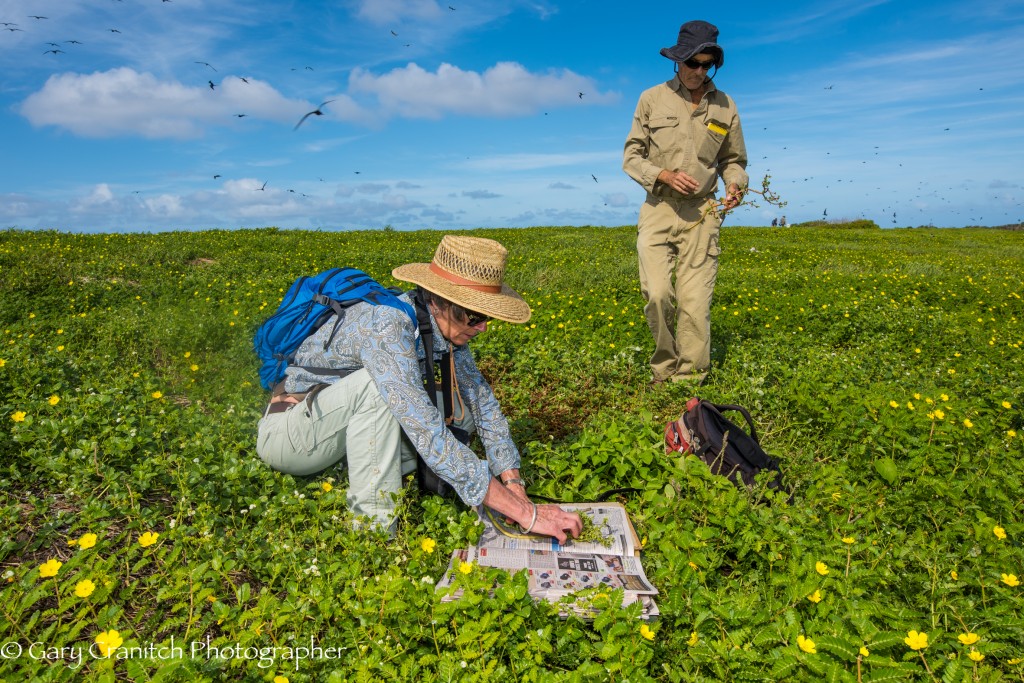By Dr John Westaway
Vegetation on the Coral Sea islands was in undisturbed condition and appeared lush and in good health perhaps reflecting recent rainfall, and there were not weeds.
The small isolated coral sand cays of the Coral Sea support vegetation communities comprised of a limited suite of hardy plants that can withstand the extreme conditions of strong and persistent salty winds, harsh ultraviolet solar radiation and poor soils.
The most seaward vegetation is formed by the dome-shaped Octopus Bush (Argusia argentea) that form a narrow fringe along the foredune.

Behind the Octopus Bush on North East Herald are stands of the Bird-lime Tree (Pisonia grandis) forming closed forests or low closed forest where wind shorn. Very few plants occur under Pisonia and the ground layer is covered in leaf litter and mined with Shearwater burrows.
The interior of the islands support a mosaic of shrubland and herbfield communities featuring the bright yellow-flowered Abutilon albescens, Chaff Plant (Acyranthes aspera) and Caltrop (Tribulus cistoides) both of which have spiny fruit, and the sprawling tar-vines (Boerhavia mutabilis & B. albiflora) that have small sticky fruits.
Plants colonise these isolated islets by their seeds floating across the sea or sticky seed adhering to seabirds. The Coral Sea flora is comprised of typical island strand or littoral species that are widespread across the tropical Pacific Ocean.
The high density of nesting seabirds drives biological productivity on the islets by supplying rich guano that fertilises the otherwise low-nutrient alkaline sands. This nitrogenous input is so high that is some cases may become toxic and together with damage by nest construction can be detrimental to the long-term health of the shrubs. The nesting activities of Green Turtles can also undermine the young recruits of Octopus Bush.

